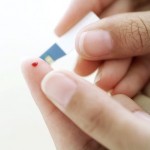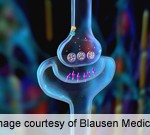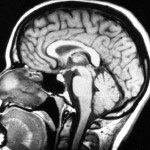Urtica dioica, lipoic acid possible therapeutics for diabetes?

A new study shows that a hydroalcholic urtica dioica extract helps reduce insulin resistances, particularly induced by a high fructose diet, which is commonly used in the West.

A new study shows that a hydroalcholic urtica dioica extract helps reduce insulin resistances, particularly induced by a high fructose diet, which is commonly used in the West.

A study in Molecular Nutrition and Food Research suggests eating vegetables and polyunsaturated fatty acids rich plant oil can help reduce DNA strand breaks.

Results of a large new U.S. study confirm that sugary drinks are linked to a heightened risk of developing Type 2 diabetes, but shed little light on whether caffeine helps or hinders the process.

Patients with type 1 diabetes displayed a greater risk for developing chronic liver disease, including a fourfold prevalence for cirrhosis, compared with the general population, according to study data presented at The Liver Meeting.

Clinical depression affects approximately 21 to 27 percent of people with type 1 diabetes and 11 percent of type 2 diabetics, according to an article in Diabetes Spectrum.

A new process using near infra-red may be on the way to a technological revolution in blood glucose meter design. A senior Physician at Joslin Diabetes Center serves as a scientific advisory board member for the company developing a real-world model.

Researchers at McMaster University have discovered new genetic evidence about why some people are happier than others.

A Chinese study of 345 patients divided between non-diabetics and people with type 2 diabetes concludes that gut bacteria between the two groups differs substantially-so much so that the bacteria can be used to accurately determine who has or doesn’t have the disease.

An FDA-approved drug initially used to treat insulin resistance in diabetics has shown promise as a way to improve cognitive performance in some people with Alzheimer’s disease.

In September, Living Cell Technologies (LCT) revealed positive results from its JDRF-funded Phase II study of DIABECELL—a unique proprietary encapsulation technology comprised of encapsulated pancreatic islets from pigs.

There is a bidirectional relationship between type 2 diabetes and depression, with a stronger correlation for depression predicting diabetes onset, according to research published online Nov. 12 in Diabetes Care.

Youth with type 1 diabetes mellitus (T1DM) exhibit a pattern of regional diffusion tensor imaging differences that is suggestive of axonal injury or degeneration and may be related to episodes of severe hypoglycemia.

To compare the effects of metformin and sulfonylureas on cardiovascular outcomes such as heart attack, stroke, and death, researchers looked at the charts of more than 250,000 veterans receiving health care at Veterans Health Administration hospitals across the United States.

University of California, San Diego School of Medicine researchers have found a direct correlation between low levels of serum vitamin D3 and onset of type 1 diabetes.

A recent study published online in October 2012 in the British Journal of Nutrition (and reported on in Diabetes In Control) attempted to address the issue of how timing of exercise relative to meal ingestion influences substrate balance and metabolic responses.

Chronic wounds such as foot ulcers are a common problem for diabetics and are the cause of more than 80 percent of the lower leg amputations in these patients.

The later consequences of diabetes, however, which mostly affect the blood vessels and cause cardiovascular conditions such as myocardial infarctions or strokes, are more likely to be fatal.

Stem cells in the adult pancreas have been identified that can be turned into insulin producing cells, a finding that means people with type 1 diabetes might one day be able to regenerate their own insulin-producing cells.

Patients with diabetes have a significantly higher prevalence of hearing impairment than patients without diabetes.

A collaboration between scientists in Munich, Germany and Bloomington, USA may have overcome one of the major challenges drug makers have struggled with for years: Delivering powerful nuclear hormones to specific tissues, while keeping them away from others.